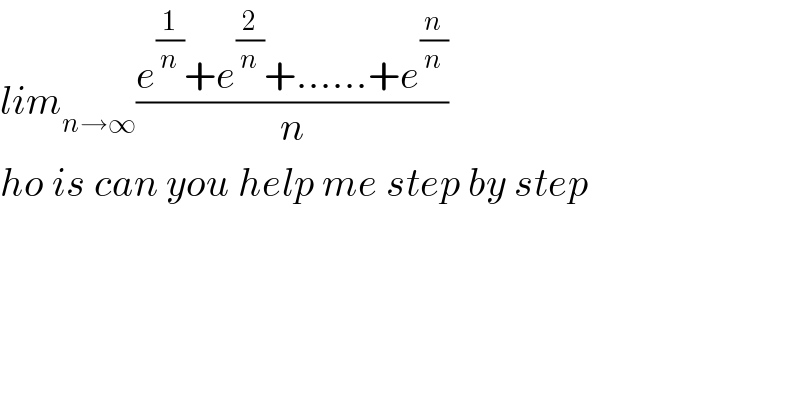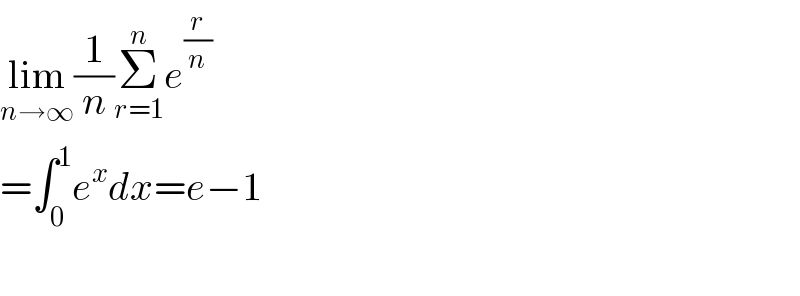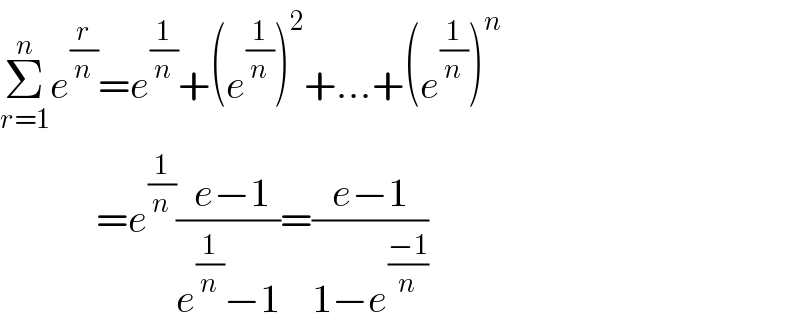
Question Number 110616 by mohammad17 last updated on 29/Aug/20

$${lim}_{{n}\rightarrow\infty} \frac{{e}^{\frac{\mathrm{1}}{{n}}} +{e}^{\frac{\mathrm{2}}{{n}}} +......+{e}^{\frac{{n}}{{n}}} }{{n}}\: \\ $$$${ho}\:{is}\:{can}\:{you}\:{help}\:{me}\:{step}\:{by}\:{step} \\ $$
Answered by Dwaipayan Shikari last updated on 29/Aug/20

$$\underset{{n}\rightarrow\infty} {\mathrm{lim}}\frac{\mathrm{1}}{{n}}\underset{{r}=\mathrm{1}} {\overset{{n}} {\sum}}{e}^{\frac{{r}}{{n}}} \\ $$$$=\int_{\mathrm{0}} ^{\mathrm{1}} {e}^{{x}} {dx}={e}−\mathrm{1} \\ $$$$ \\ $$
Commented by mohammad17 last updated on 30/Aug/20

$${sir}\:{lim}_{{n}\rightarrow\infty} \frac{\mathrm{1}}{{n}}=\mathrm{0}\Rightarrow\underset{{r}=\mathrm{1}} {\overset{{n}} {\sum}}{e}^{\frac{{r}}{{n}}} =\mathrm{0} \\ $$
Commented by Aziztisffola last updated on 31/Aug/20

$$\underset{{r}=\mathrm{1}} {\overset{{n}} {\sum}}{e}^{\frac{{r}}{{n}}} ={e}^{\frac{\mathrm{1}}{{n}}} +\left({e}^{\frac{\mathrm{1}}{{n}}} \right)^{\mathrm{2}} +...+\left({e}^{\frac{\mathrm{1}}{{n}}} \right)^{{n}} \\ $$$$\:\:\:\:\:\:\:\:\:\:\:\:={e}^{\frac{\mathrm{1}}{{n}}} \frac{\:{e}−\mathrm{1}}{{e}^{\frac{\mathrm{1}}{{n}}} −\mathrm{1}}=\frac{{e}−\mathrm{1}}{\mathrm{1}−{e}^{\frac{−\mathrm{1}}{{n}}} } \\ $$
